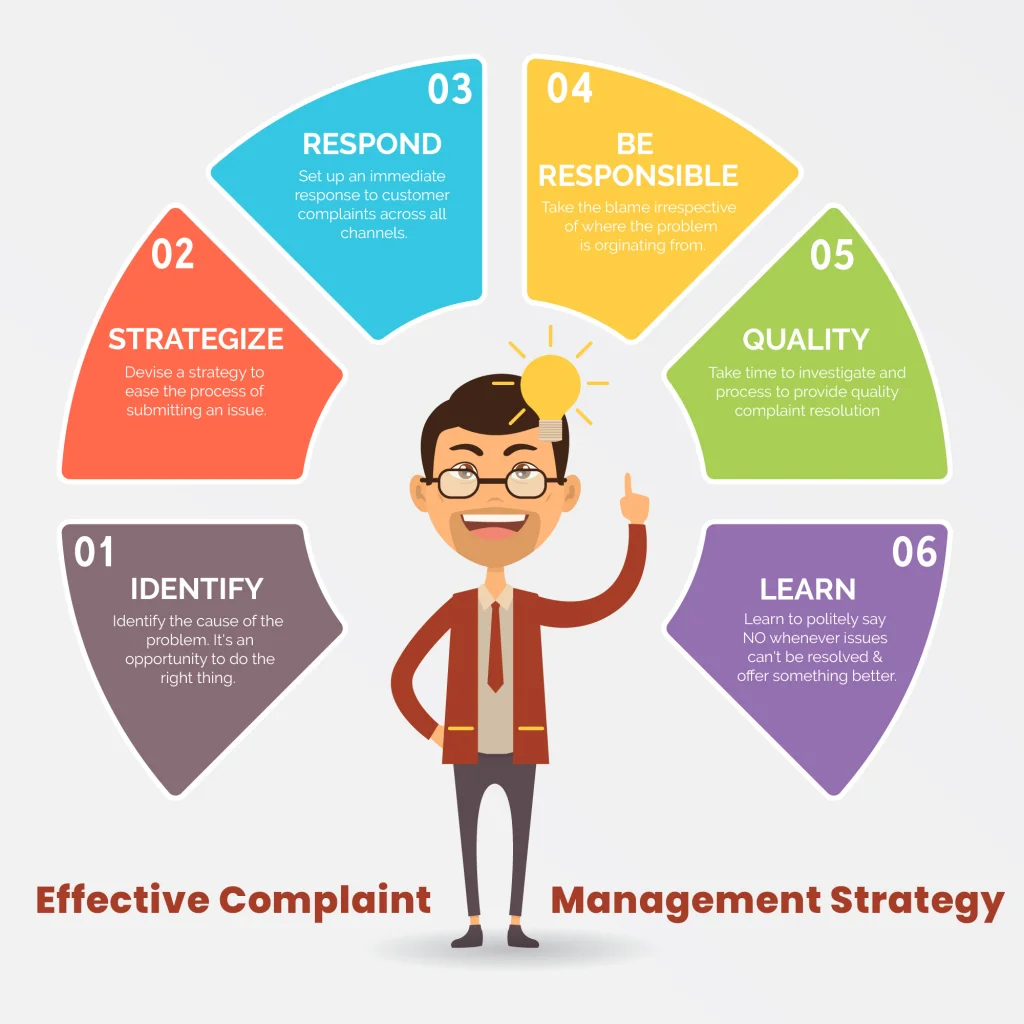How do I effectively manage and respond to customer complaints?


Customer complaints are an inevitable part of running a business. No matter how well you serve your customers, there will always be instances where they are dissatisfied with your product or service. However, the way you manage and respond to these complaints can make a significant difference in customer satisfaction and loyalty. In this article, we will explore effective strategies for managing and responding to customer complaints, ensuring that you can resolve issues promptly and maintain a positive customer service experience.
1. Listen and empathize
When a customer approaches you with a complaint, the first step is to listen attentively and empathize with their concerns. Let them express their frustration or disappointment without interruption. Show genuine empathy by acknowledging their feelings and assuring them that you understand their perspective. This step is crucial in building trust and rapport with the customer.
2. Apologize and take responsibility
Once the customer has shared their complaint, apologize for the inconvenience or negative experience they have had. Taking responsibility for the issue shows that you value their feedback and are committed to resolving it. Avoid making excuses or blaming others, as this can further escalate the situation. Instead, focus on finding a solution and rectifying the problem.
3. Investigate and gather information
To effectively address the customer’s complaint, you need to gather all the necessary information. Ask the customer for specific details about the issue, such as the date of purchase, product or service details, and any relevant documentation. This information will help you investigate the problem thoroughly and provide an accurate resolution.
4. Offer a solution
Once you have gathered all the necessary information, it’s time to offer a solution to the customer. Depending on the nature of the complaint, you may need to consult with your team or higher management to determine the best course of action. Your solution should aim to resolve the issue promptly and to the customer’s satisfaction. Be transparent about the steps you will take to address the problem and provide a timeline for resolution if possible.
5. Communicate effectively
Clear and timely communication is essential when managing customer complaints. Keep the customer informed about the progress of their complaint and any updates or changes to the resolution process. If there are any delays or unforeseen circumstances, inform the customer promptly and offer alternatives or compensation if appropriate. Regular communication will help build trust and reassure the customer that their complaint is being taken seriously.
6. Learn from the complaint
Every customer complaint is an opportunity for improvement. Take the time to analyze the root cause of the complaint and identify any underlying issues in your product or service. Use this feedback to make necessary changes and prevent similar complaints in the future. Share the lessons learned with your team to ensure everyone is aware of the improvements made and can provide better customer service moving forward.
7. Follow up
After resolving the customer’s complaint, it’s essential to follow up to ensure their satisfaction. Reach out to the customer to confirm that the issue has been resolved to their liking and ask for feedback on their overall experience. This step demonstrates your commitment to customer satisfaction and provides an opportunity to further strengthen the customer relationship.
Conclusion
Effectively managing and responding to customer complaints is crucial for maintaining a positive customer service experience. By listening and empathizing, taking responsibility, investigating and gathering information, offering a solution, communicating effectively, learning from the complaint, and following up, you can address customer complaints promptly and ensure customer satisfaction. Remember, a well-handled complaint can turn a dissatisfied customer into a loyal advocate for your business.
Recent Posts
How do I create an engaging and informative online quiz or assessment?
Creating an engaging and informative online quiz or assessment can be a powerful tool for… Read More
What are the most effective methods for managing and reducing work-related stress in the hospitality industry?
Work-related stress is a common issue in the hospitality industry, where employees often face long… Read More
How can I improve my assertiveness and communication skills in a leadership position?
In a leadership position, assertiveness and effective communication skills are crucial for success. Being able… Read More
What are the key elements of a successful employee recognition and rewards program?
Employee recognition and rewards programs play a crucial role in motivating and engaging employees, as… Read More
How do I effectively manage and respond to customer feedback and reviews?
Customer feedback and online reviews play a crucial role in shaping a company's reputation and… Read More
What are the best strategies for effective time management as a stay-at-home parent?
Effective time management is crucial for stay-at-home parents who juggle multiple responsibilities on a daily… Read More